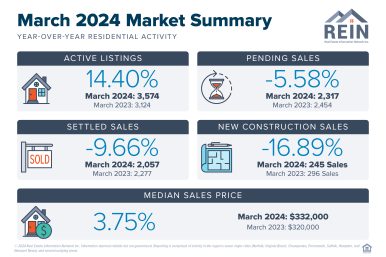Norfolk-based Wilbanks Smith and Thomas Asset Management has been acquired by Cleveland-based registered investment adviser Clearstead Advisors.
The companies signed the merger in February 2024. Financial terms of the acquisition, which closed April 1, were not disclosed. Clearstead rebranded WST’s advisory business as Clearstead Advisory Solutions, a division of Clearstead Advisors.
A wealth and investment management firm, Wilbanks Smith and Thomas (WST) had more than $5 billion of assets under management as of Dec. 31, 2023, according to a news release. After the closure of the merger, Clearstead and its subsidiaries have about $44 billion in total assets under advisement, including $20 billion in total assets under management, 225 employees and offices in nine cities.
The six WST partners became shareholders in Clearstead, giving it a total of 65 employee-owners. The division’s 45 employees will continue to serve clients from offices in Norfolk, Roanoke and Raleigh, North Carolina.
Former WST Managing Principal and Chief Investment Officer Wayne Wilbanks co-founded WST in 1990 and will continue to lead the division in Norfolk and the mid-Atlantic states, now as executive managing director of Clearstead Advisory Solutions.
“We are philosophically similar to Clearstead in our client approach and a strong complement geographically, given our presence in the mid-Atlantic and Southern states,” Wilbanks said in a statement. “Most importantly, our clients will benefit from Clearstead’s family office planning capabilities, alternative investments platform, in-house research and wealth management capabilities.”
WST is Clearstead’s largest acquisition so far. Since Chicago-based private equity firm Flexpoint Ford purchased a majority stake in Clearstead in 2022, the Cleveland-based firm has made a string of acquisitions, including Cleveland-based wealth managers Burkhart & Co. and Scott Snow (financial advisers) and Santa Fe, New Mexico-based financial adviser Avalon Trust.
“Strategic and prudent mergers make us a stronger firm — each brings talent and capabilities to serve clients more effectively, which is our primary focus,” Clearstead CEO and Co-Chairman Dave Fulton said in a statement. “This is the impetus for our combination with WST, for which we have the highest hopes.”


